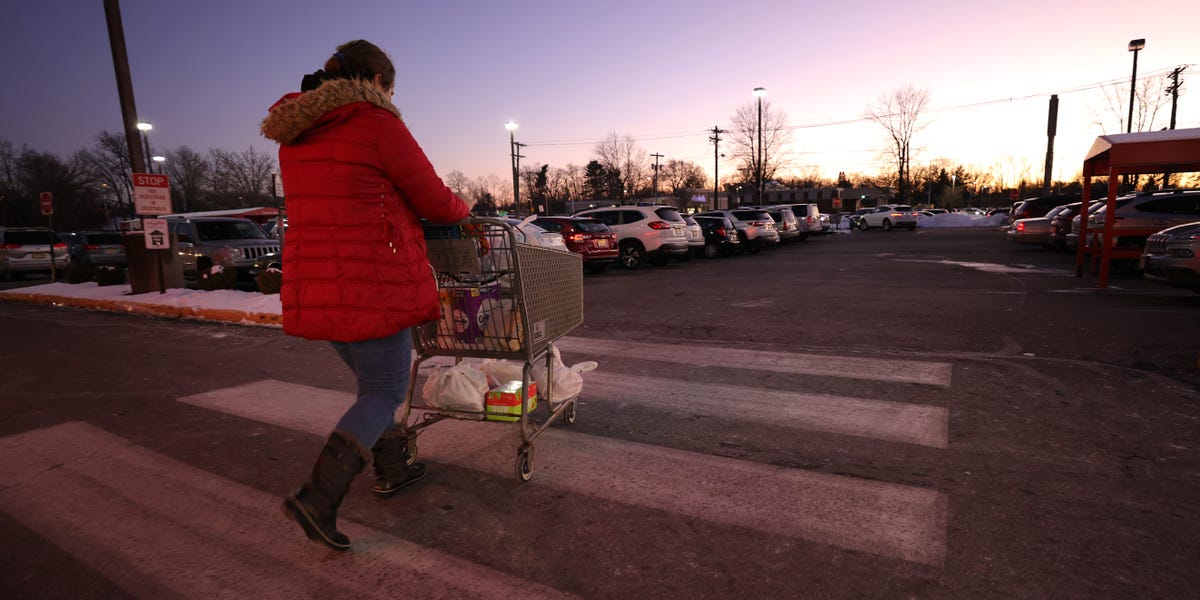- Robinhood is working with Grubhub, Gopuff, and Taskrabbit to offer retirement accounts for workers.
- The brokerage matches a share of workers’ contributions, not their overall earnings.
- While some savings are better than none, it’s hard for some workers to set much aside.
Thanks for signing up!
Access your favorite topics in a personalized feed while you’re on the go.
download the app

Some gig work services are offering a perk usually associated with traditional jobs: retirement savings accounts with matching contributions.
Robinhood, the stock trading app, said at the end of February it would work with Grubhub, Gopuff, and Taskrabbit to offer individual retirement accounts to independent contractors on those platforms.
While the companies say the accounts could help workers save for retirement, the matching contributions won’t be as substantial as what you’re used to if you have a job that comes with a 401(k).
Unlike with a 401(k), Robinhood’s match is based on what an employee contributes, not what the worker earns. Robinhood’s match ranges from 1% to 3% and becomes 1% after the first year. So if a worker adds $1,000 to the retirement account and there is a 2% match in the first year, Robinhood would kick in $20.
Account holders must keep the money in their account for five years to become fully vested.
Alexandrea Ravenelle, an assistant professor in sociology at the University of North Carolina, Chapel Hill, told BI she would like to see gig workers classified as employees of the platforms, not independent workers.
Ravenelle said she doesn’t think the contribution from Robinhood — and not the company the person is ostensibly working for — will make much difference for most workers.
Ravenelle said a better plan would be for companies to extend similar types of retirement benefits to gig workers as employees of those companies enjoy. “You would see the platforms rolling this out and announcing that they were now offering retirement contributions and doing the match,” she said.
Lawmakers have floated ideas to help address some Americans’ paltry retirement savings. One proposal would set up retirement accounts for those who don’t have access to one through their jobs. Doordash has said it supports the effort.
What gig workers say they want
Morgan Courtney, director of supply operations and success at Taskrabbit, told BI that in surveys, 70% of the platform’s workers have said they wanted help in areas like financial wellness and retirement investments. “It’s going to help our Taskers basically have some resources to invest in their own retirement and financial future,” she said of the partnership with Robinhood.
Courtney said Taskrabbit isn’t considering making retirement contributions toward the independent workers who use its platform. She noted the program with Robinhood is the first of its kind for gig workers.
“Perhaps it’s something that could be considered for the future, but for now, we’re really excited that Robinhood has basically been able to build this model where they are able to do the matching,” Courtney said.
Steve Quirk, chief brokerage officer at Robinhood, told BI that if the match prompts some workers to set aside money, they’ll be able to see the benefit of having an individual retirement account. The US government has set a 2024 IRA contribution cap of $7,000 for people under 50 and $8,000 for those above.
“Can everybody make the maximum contribution every year? Probably not. But if they can contribute as much as they can, I think in the long run, you know, it’s going to be beneficial for them,” Quirk said.
The Robinhood program also offers gig workers on these platforms access to free financial counseling through GreenPath Financial Wellness, a nonprofit.
Workers have “no money left”
Yet even with a new incentive to save, putting aside a little bit can be out of reach.
Sergio Avedian, a Los Angeles-based industry advocate for gig workers who drives for an app himself, often encourages gig workers to set aside money for retirement.
But many don’t have the extra income to put into a retirement account. Workers for many apps say their earnings have declined recently thanks to pay cuts by the apps, less demand for delivery compared with 2020, and more people competing to fill and deliver orders.
Last summer, Instacart cut its base pay to $4 from $7 per batch of orders.
“It’s very important, but a lot of people say they have no money left after paying for expenses,” such as gas and car maintenance, he said.
That’s the case for one Grubhub driver in Idaho, who asked that BI not publish their name because they were afraid of having their account deactivated. Last fall, the driver said, they set aside money they got as a wedding gift to invest in their retirement.
But they said they don’t have much left over after paying their bills to contribute to an account like the one Grubhub and Robinhood are now offering drivers.
“How is that going to work?” the driver asked rhetorically. “I can maybe contribute $2 a month and then retire at age 307.”
Do you work for Instacart, Gopuff, or another gig delivery service and have a story idea to share? Reach out to this reporter at abitter@insider.com.


